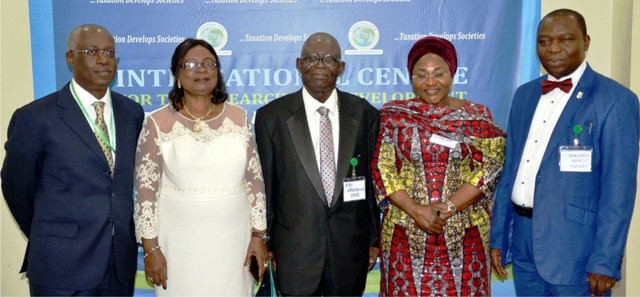Business
France Invests N150bn In Nigeria

The Ambassador of the Federal Republic of Nigeria to France, Dr Modupe Irele, has announced that France invested about N150 billion(350 million euros) in Nigeria in 2017.
Irele told newsmen in Lagos yesterday that the amount was disbursed as soft loans to the Federal and State Governments, as well as the private sector.
“It is estimated that in 2017 alone, France invested around 350 million Euros (about N150 billion) in Nigeria, mostly through soft loans to both the Federal and State governments and the private sector.
“Available records also state that at the end of the first quarter of 2017, the trade volume between France and Nigeria stood at N668 .75
billion (1.9 billion euros).
“And in 2016, the volume of trade transacted between Nigeria and France was N339.77 billion,” she said.
Irele said that France and Nigeria’s economic relations had over the past 100 years been dominated by businesses in oil and gas, construction and other enterprises.
According to her, Nigeria remains France’s first trading partner in sub-Saharan Africa.
The Ambassador said that more French companies and businesses were prepared to take advantage of the nation’s ongoing initiatives at enhancing the Ease of Doing Business in Nigeria, for foreign investors.
“The French, like many other business people, are showing interest in the drive to improve the ease of doing business in Nigeria and welcome the policies as positive developments.
“The over 100 years plus of Franco/Nigeria economic relations, have largely been dominated by big businesses in oil and gas, construction and others.
“However, we are witnessing a significant shift of interest to areas, including the agro-allied industry, SMEs, renewable energy, technology and start-ups, among others,” she said.
Irele said that she was currently working at increasing socio-cultural exchanges between France and Nigeria, as well as expanding mutually
beneficial economic ties between both countries.
The Nigerian Representative in France added that her embassy would also exploit unexplored investment and export opportunities between
both countries.
“We are also encouraging cooperation in the areas of technology, research and development, given the critical role technology is playing in defining our today and tomorrow,” she added.
The trade volume between France and Nigeria hit 1.9 billion euros (about N668 .75 billion) in the first quarter of 2017.
Business
Nigeria’s ETF correction deepens as STANBICETF30, VETGRIF30 see 50% decline in a week

Business
BOI Introduces Business Clinic

Business
Dangote signs $400 mln equipment deal with China’s XCMG to speed up refinery expansion

-
Maritime1 day ago
Customs Declares War Against Narcotics Baron At Idiroko Border
-

 Sports1 day ago
Sports1 day agoGombe-Gara Rejects Chelle $130,000 monthly salary
-
Maritime1 day ago
Nigeria To Pilot Regional Fishing Vessels Register In Gulf Of Guinea —Oyetola
-
Maritime1 day ago
NIMASA,NAF Boost Unmanned Aerial Surveillance For Maritime Security
-
Maritime1 day ago
NIWA Collaborates ICPC TO Strengthen Integrity, Revenue
-

 Sports1 day ago
Sports1 day agoTEAM RIVERS SET TO WIN 4×400 ” MORROW” …Wins Triple jump Silver
-

 Sports1 day ago
Sports1 day agoNSC eyes international hosting rights
-
City Crime1 day ago
NCSU Hails Fubara Over 2025 New Telegraph Man Of The Year Award

